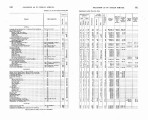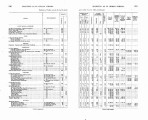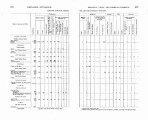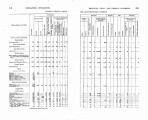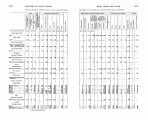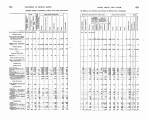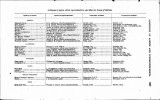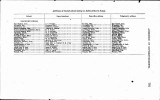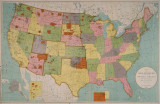| OCR Text |
Show REPORT OF SUPERINTENDENT OF INDIAN SCHOOLS. 415 Tranapertstion of pupils to day schooh.-H. E. Wilson, superintendent Fort Ber-thold Boarding School.-The attendanre at day echools is not so good as at the other schools. This is due to the fact that a number of the pupils live such a distance from the schoolhouse that it is difficult for them to get to school; and often it is a hardship for the parents to take the children to school, since they can not always spare the tme to take them 5 miles or more each day. To remedy this difficulty I suwst that the parents take turns bringing the children to school-i. e , one man brlnga all the chddren on his route to schwl one week, his neighhor performs this service next week, and ao on; that the policemen take tarns in bringin children to school; that farmers and other employees use their influence in behalf 07 this object; and, lastly, it may be possible to employ a transportation agent out of the labor und i i some instances. School government.-Mr. Matheny, principal h c h e r Fort Berthold Miasion.-All discipline and government should aim to develop character and make the pupils able to he leaders and helpers in their future life among their own wple. Discipline should be adapted to each nature. Theindiv/duality of each pnpifmnst be recognized and studied. A teacher should always he klnd and pleasant, hut firm,. He should see that his own c h a a r is one which his pu ils can respect. He should himself he what he expects his pupils to be, and eontro?by example. Be sure not to expect tdo much of your pupils. Provide innocent amu~ement for them during the play hour. Do not kee them at work all the time, hut keep them husy all the time. Edncation.-Dr. 1. J. Morris, agency physician.-TheIndians became wards of the nation because they were devoid*f education. Fortheir own protection and forthe azfety of those itmund them our Governn~ent established a system of education. I pred~ctth at fifty years hence we will see an Indian people who will be an honor to the nation. which has exuended so much care and money. up.o n their enlightenment and education. . An industrial lsngnage lesson on breadding.-Preeentedby Mrs. H. E. Wilson and her domesticacienceclass.-All necessary utensils and material for bread making were brought to the school~00m~ The teacher's desk wasuaed for a table. Each mem-ber d the class took her place around the table. The teacher asked each girl to name the different kindsof utensils and materialsnsed in the processof bread making, nn follows: C)ue~tion. What is this. Bessie? lindicatine the mixine howl1.-Answer. I t isamixinebowl. rEachanswe<fomedaiom~leteie ntence.1 &. Jeainette, what is rltis!-.a. Lr ic floitr. Q. \\'illena, Inow is tlbur made?-.I.- E'lc~ur id made from wlrtat; r l ~urn rsitlera tnke~toHa rcd the inridr irgmund tine ieafluur mill. 0. \!'laat in in this c.un. t i rwr l - A . Yeast is in thecun. O. Whsr d o e !.earl ~ I 1u0 tlle bread. Grace?-A. yt makes the bread light. Q. what Ts veaet, Jann'ette7-A. It is a plant fhar grown whr~t put in tlle q x m p (1. Jearri~eile and \\'illena !nay etir ui tltr sponge. Alter t h i r a u ,l#rne tltr rrru'lner asked .Irstlneltewhrt she put in rlrr vrovk. A. I nut a allart of warm water. venst. and flnt~irn thecrock. 0. IVillena. what did yon put in'the crwk?-A. I i<t a of warm water, a cake of yeast,'and flour enon h @ make a kt&=. Q. Whst will you now do with the sponge, Jeannette?-- A. T8e wwlll place it in a warm plan to rise. The teacher said, You may now take the spon and leave it in a warm lace tr. rise. Gmce and Abhie, get the light sponge andgmix the bread. p m e tgat had been previously prepared was brought in. The other girls were mught to the blackboard to write description of what had been done. When the bread mixing was over, the girls left the boards and returned to their positions around the table.] Q. Grace, how much =It did ouuso?-A. I put one teas oonfnlof salt in the hread. Q. Bessie, how much salt diXthe girls use in t.he bra&-*. They each put one teaspoonful in. Q. How much flour did you use, Grace?-A. Enough to make the dough stiff. Q. What will the girls do now, Mabel?-A. They will leave the dough till it gete light. Q. BBssie and Mabel may bring in the light dough and n~akei t into loaves. [The girls grease the pans.] Q. What are you doing to the pans?-A. W e are greasing the pans. [Eachgirl took her turn in answering a seriea of questions about the process np to this oint, reviewing the work already done.] Q. Why do ou grease the pans?-A. V#e ggrease the pans to keep the bread from sticking. Q. &hat are the irla doing to the bread, Grace?-A. They are kneadingit. &. Bessie, what are you joing?-A. 1.m making the doughinto loaves. Q. What have they done and what w~ l lth e rls now do with the loaves?-A. They have made the dough into loaves and will$et them remain until they arelight. Q. When the loaves are light, what will you do, Grace?-A. We will bake them for onehour. Q. If the loaves were large, bow long would you bake them, Ahbie ?-A. Two hours. [Various questions were asked the class about the character of bread, its purpose, effect on the system, etc., and &r the bread wea baked it was brought in and passed around.] |






















































































































































































































